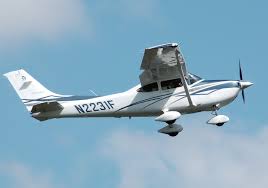The Evolving World of Jet Technology

Introduction to Jet Technology
Jet technology has revolutionised the way we travel, offering speed and efficiency that traditional modes of transport cannot match. With the aviation industry constantly evolving, advancements in jet propulsion technology are crucial for enhancing performance, reducing emissions, and improving passenger experience. This topic is particularly relevant in light of recent developments aimed at addressing environmental concerns and operational efficiency in a post-pandemic world.
Recent Advances in Jet Propulsion
In 2023, several key advancements in jet technology have emerged. Notably, the introduction of sustainable aviation fuels (SAFs) is gaining traction, with numerous airlines committing to incorporate SAFs into their fleets. For instance, major players like British Airways and KLM have initiated projects to boost the use of SAFs, projecting a significant reduction in carbon emissions. Additionally, companies such as Rolls-Royce are investing in hybrid-electric propulsion systems, potentially offering greener options in the near future.
The Impact of Jet Technology on Passenger Experience
Innovations in jet designs are not only environmentally focused but also greatly enhance passenger comfort. The latest models of aircraft are designed with cabin pressure improvements, noise reduction technology, and better ergonomics that contribute to a more pleasant travelling experience. For instance, the Boeing 787 Dreamliner features larger windows and improved air quality, which have been well-received by passengers. Airlines are also exploring the incorporation of better entertainment systems and onboard Wi-Fi to further enrich the customer experience.
Jet Technology and Future Predictions
The significance of jet technology extends beyond just enhancing passenger comfort and reducing carbon footprints. Experts predict that the airline industry will continue to push for innovations, with the aim of achieving net-zero carbon emissions by 2050. The large-scale adoption of electric and hybrid jets is expected to transform regional travel, making it more sustainable. Regulatory bodies are beginning to set benchmarks that require airlines to adapt swiftly to these changes, signalling a transformative period in aviation.
Conclusion
In conclusion, the evolution of jet technology is pivotal not only for the airline industry but also for global efforts to mitigate climate change. As advancements in sustainable fuels and propulsion systems come to fruition, we can expect a ripple effect across the transportation sector. The continuing focus on enhancing passenger experience alongside environmental sustainability will ensure that jet technology remains a significant area of development in the years to come. For readers, staying informed about these changes is essential, as they will shape the future of travel.







